Puckout breakdown: Cork's collapse under Limerick pressure

Cork's Shane Barrett is tackled by Limerick's Kyle Hayes. Picture: Eddie O'Hare
Cork’s hopes of getting a result at the TUS Gaelic Grounds faded all too quickly. When Limerick had 1-2 on the board and Cork were still scoreless, alarm bells were already ringing.
The game was over before the 20th minute. In that time, Cork had won just one of their own long-range restarts. They were being utterly dominated in the air.
The cycle was relentless: Patrick Collins would go long, Limerick would win the break, fire it down the wing to one of a seemingly endless stream of runners, who would then promptly fire over for another score. Rinse and repeat. The misery kept piling for the travelling Cork fans.
Limerick’s had it right. They were structured, prepared, disciplined and fired up. They had a game plan, stuck with it, and reaped the rewards.
A key element of that Limerick success was their puckout strategy. It was simple but highly effective: go long and go wide. Nickie Quaid aimed for beyond the halfway line on all but three of their restarts. Yet of their 26 long puckouts, Limerick won half – 13 in total.
Cork’s half-backs weren’t totally annihilated but they were too ive. Tom Morrissey had a field day, finished with 0-5, all from play. Far too often he was left alone and in space – his freedom a by-product of Cork deploying Mark Coleman in the free roam role. It was a tactical decision that proved costly.
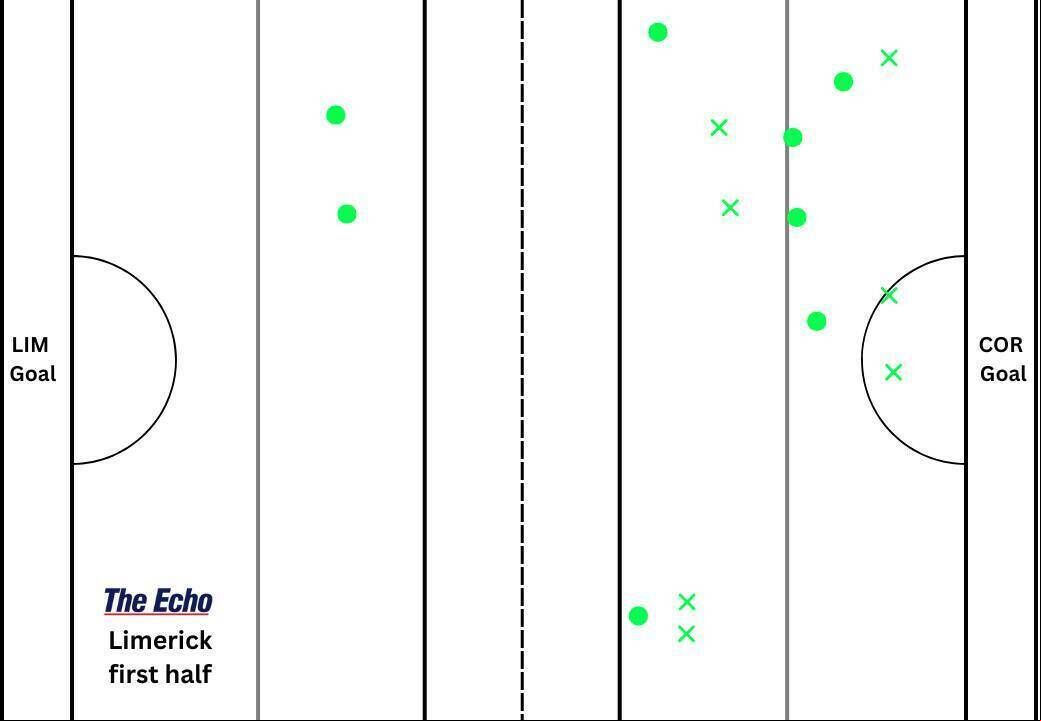
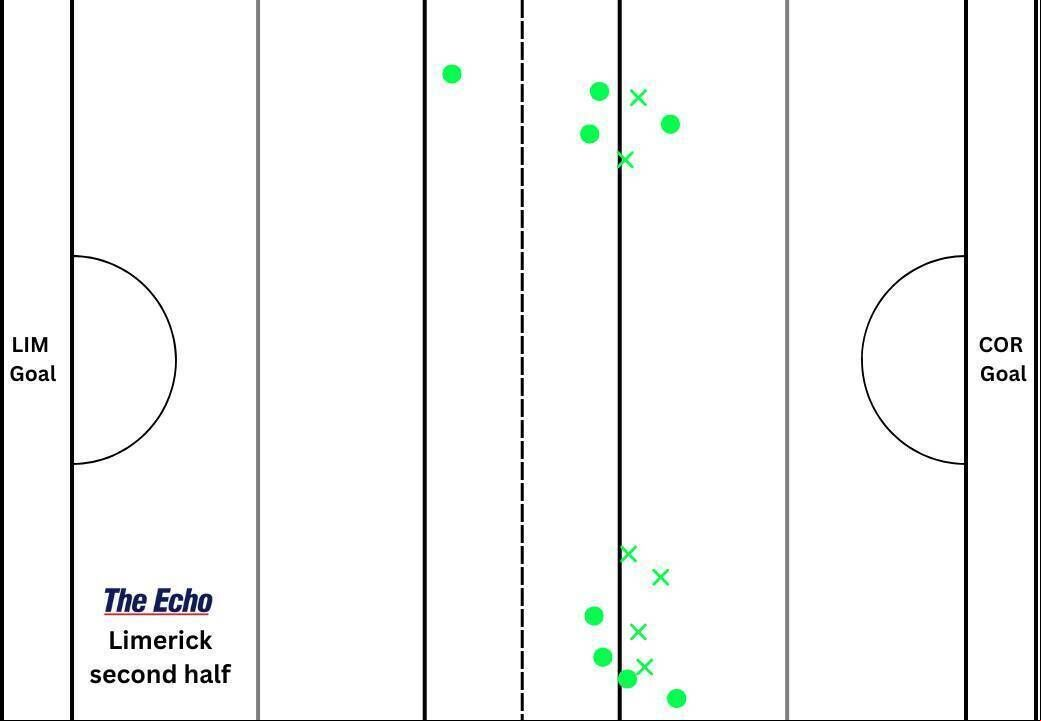
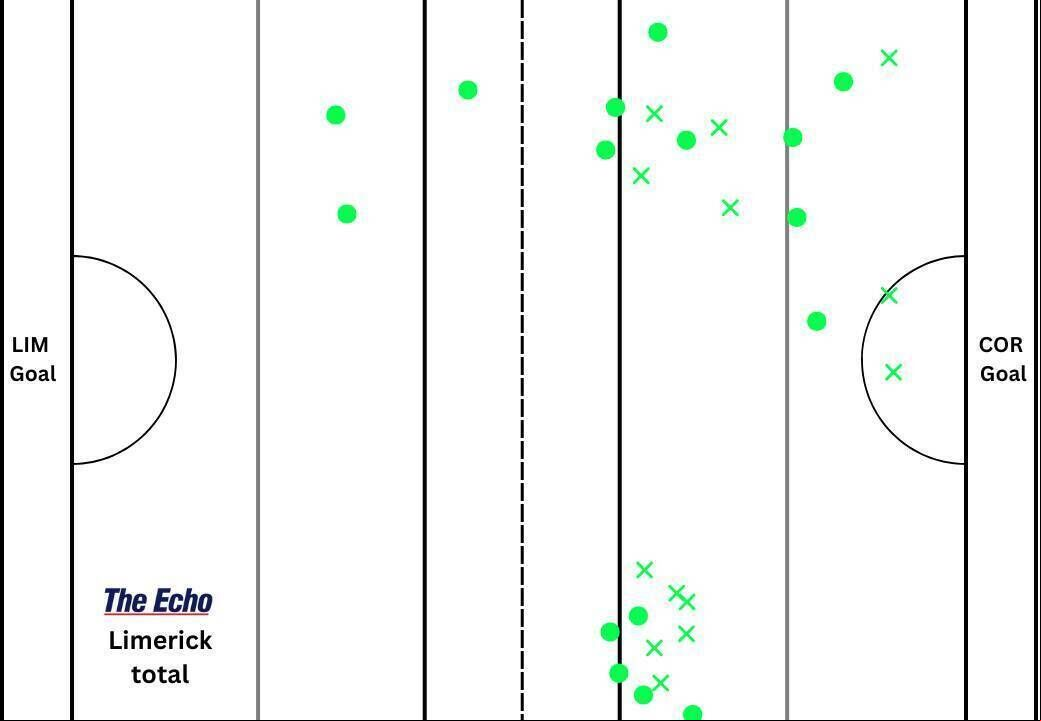
The Rebels tried taking a similar long-ball approach to their opponents, but were completely exploded. Cork won just two first-half puckouts that went beyond the half-way line. Nine of the 15 puckouts they won in the opening 35 minutes were short. They lost a total of 12 restarts in that opening period alone.
Neither flank offered any real return, just one Rebel restart was won from going long through the middle, only two while striking out left. Some of those errors were on Collins, but many more were not. The entire team were off the pace.
By the time Collins began going short with more regularity later in the first half, the game was already slipping away. Limerick were cruising, and Cork had no answers.
The second half wasn’t any better. Cork went longer out of necessity – the scoreboard demanding that they do – but they still won just six of 17 restarts.
The numbers paint a bleak picture. Only seven Cork restarts beyond the halfway line were retained. That’s 21 long puckouts lost. Even when they did manage to keep hold of it from those restarts – long or short – it was often turned over almost immediately, especially in the first half.
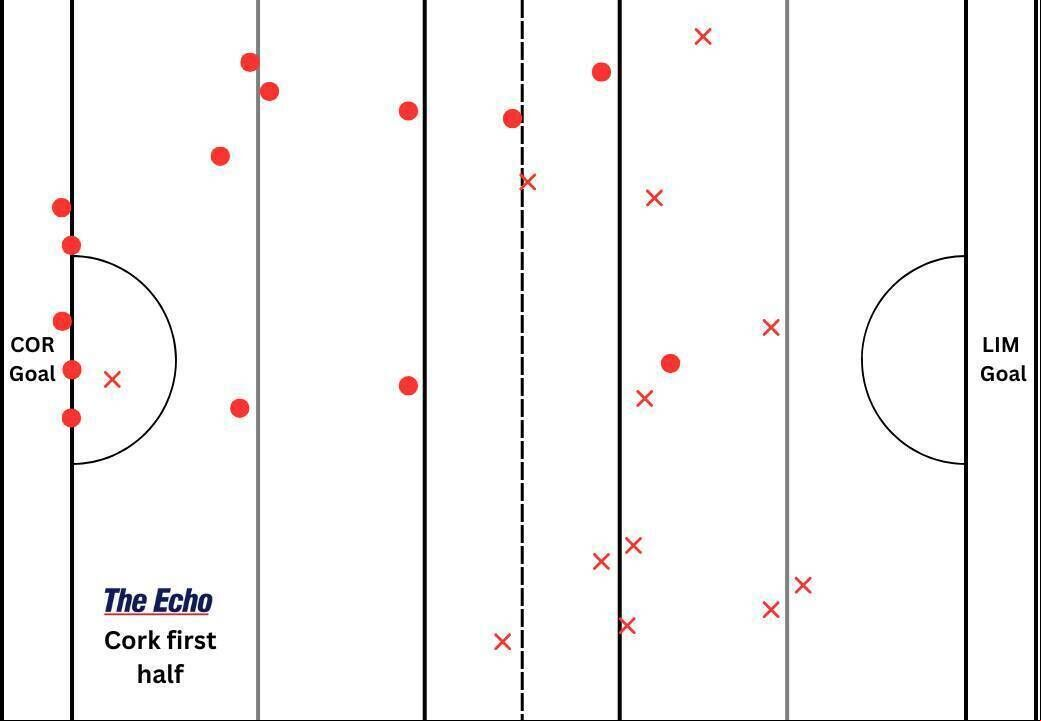
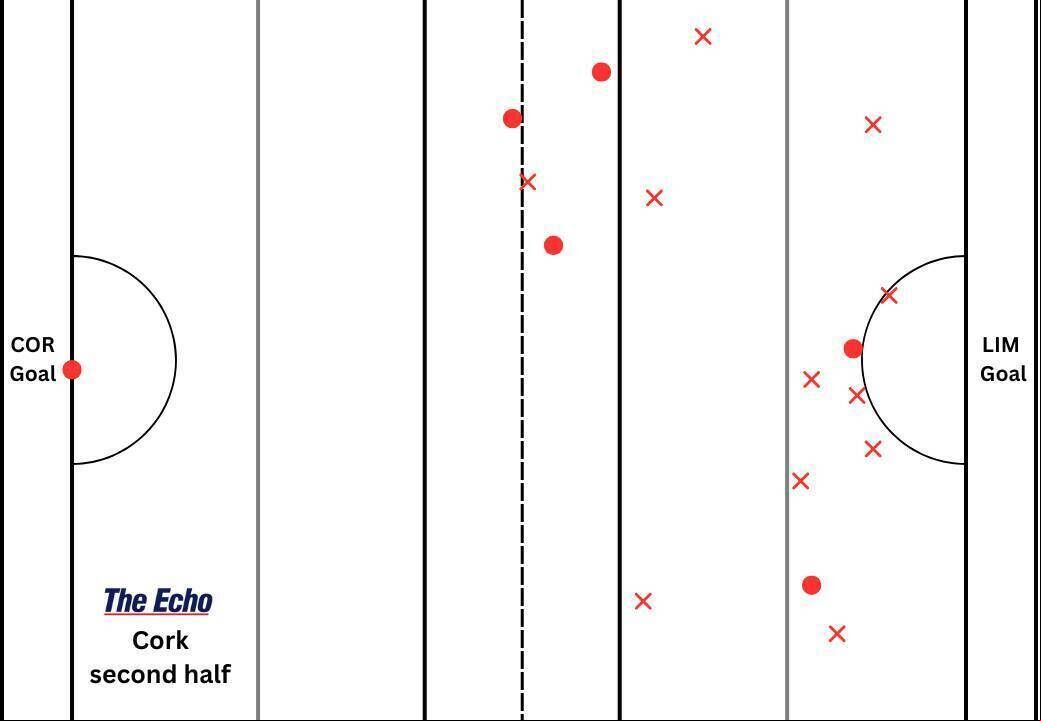

By every metric, this was a dismal display. Cork were completely overrun. Limerick converted 70% of their chances from play; Cork managed just 47%. Worse still, the Rebels scored only 0-8 from play across the entire match. Limerick, in contrast, racked up 2-20 from play.
Massive improvement is needed – and quickly. Cork now face a do-or-die clash with Waterford.
The Déise may have suffered back-to-back defeats, but they’ll be licking their lips at the chance to catch a wounded Cork side and snatch third place – and with it, a place in the All-Ireland series.










 App?
App?







